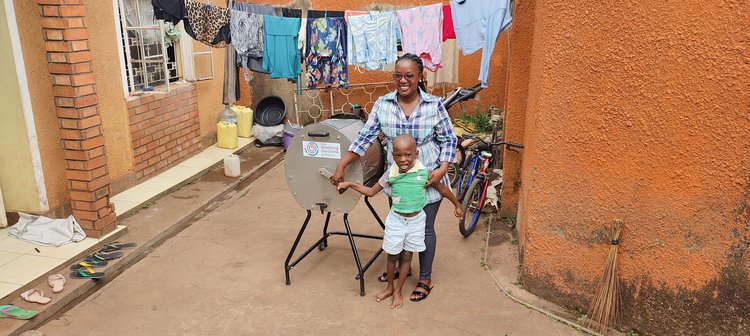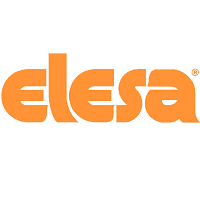The Washing Machine Project (TWMP) is a humanitarian initiative focused on providing off-grid manual washing machines to people living in low-income and displaced communities. Their mission is to ease the burden of unpaid labour, especially for women, by delivering sustainable, practical solutions.
The project was born from the experience of Nav, an aerospace engineer, who was moved by the challenges faced by his neighbour in South India, who spent up to 20 hours a week handwashing clothes. This inspired Nav to create a prototype washing machine, a small step that would later grow into The Washing Machine Project in 2019. Since then, TWMP has distributed its innovative washing machine, Divya, to more than 13 countries, impacting over 30,000 people. Through close collaboration with local communities and humanitarian organizations, TWMP tailors its solutions to meet the specific needs of different regions, empowering those it serves with a more dignified and efficient approach to laundry.
One of the main challenges in creating the Divya washing machine was ensuring it was durable, easy to manoeuvre, and affordable. Because the machine is shared within communities and used in various environments, it needed to be both long-lasting and low maintenance. This is where Elesa, a leading manufacturer of high-quality machine components, played a crucial role. Elesa was selected to supply key parts for the machine, particularly the Cylindrical Revolving Handle and the Bridge Handle, which helped address the key requirements of durability, user comfort, and mobility.The partnership with Elesa was driven by the need for components that were both sturdy and cost-effective. The Cylindrical Revolving Handle was chosen because it is comfortable to use, durable, and affordable - perfect for the crank handle that users turn to operate the machine. As the main touchpoint for users, this handle had to be able to withstand regular use while still being easy and comfortable to grip. Elesa’s Bridge Handle, meanwhile, helps with the machine’s portability, allowing users to lift and move it easily. Given that many communities share the Divya machine, portability is a key feature, and Elesa’s components have made this both practical and reliable.
The Divya washing machine itself is a game-changing innovation. It is a manually operated, off-grid solution that reduces water consumption by half and cuts laundry time by 75%. Originally inspired by the mechanics of a salad spinner, the Divya machine evolved into the world’s first flat-pack manual washing machine, which can be assembled with simple tools like a spanner, screwdriver, and hex key. Made primarily from stainless steel, it is designed to be both sustainable and recyclable, ensuring longevity in even the most challenging environments. This machine not only saves time but also opens new opportunities for women and girls, allowing them to pursue education or employment instead of spending hours handwashing laundry.

The inclusion of Elesa components has significantly enhanced the Divya machine’s overall performance. The Cylindrical Revolving Handle allows users to operate the machine with ease, reducing the time spent on each wash cycle to about 30 minutes, with only six minutes of active effort compared to the 2.5 hours typically required to handwash a five-kilogram load of laundry. The handle’s ergonomic design ensures that even during extended use, it remains comfortable, which is especially important for users washing larger loads. Similarly, the Bridge Handles, attached to the drum, make the machine easy to tilt and transport, which is vital for community members who share the machine or use it to generate income by offering laundry services to others.

Thanks to Elesa’s high-quality components, the Divya washing machine has become more reliable, user-friendly, and durable. Its strong design ensures a long lifespan with minimal need for repairs, allowing TWMP to extend its impact to more communities globally. The partnership between Elesa and The Washing Machine Project demonstrates how collaboration can lead to sustainable innovation, with Elesa’s components playing an essential role in making the Divya machine both practical and scalable. As the project continues to grow, this partnership will help improve the lives of even more people by providing an efficient, dignified solution to laundry challenges in underserved communities.













McMurtry Spéirling defies gravity using fan downforce
What a fun demonstration. I wonder if they were brave enough to be in the car when it was first turned over. Racing fan cars would be an interesting...